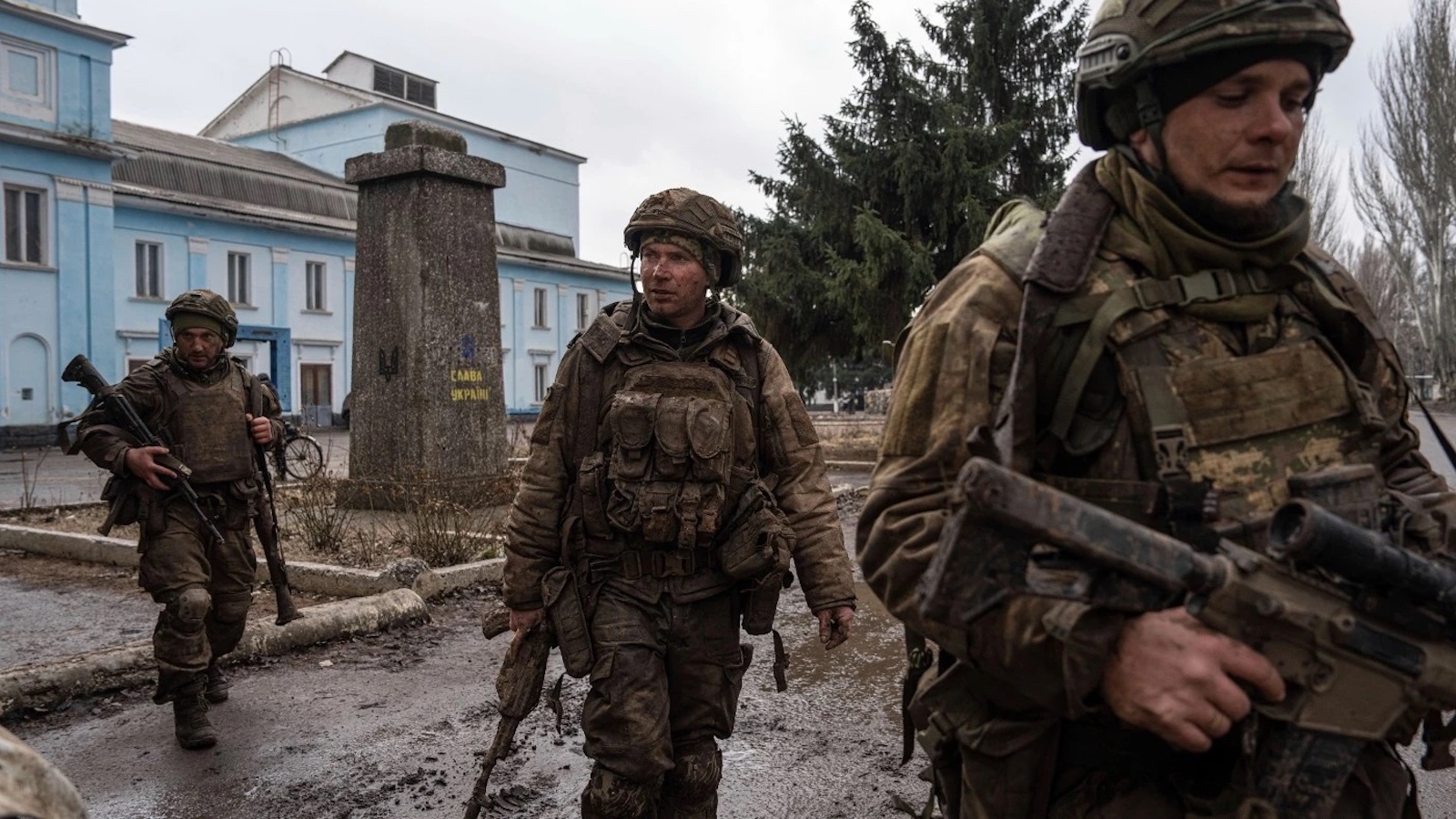
Washington Hawks Use This One Weird Trick for Endless War
“The US is never going to give up on the NATO member states. If it happens so that Ukraine, due to various opinions and weakening—depleting—of assistance, loses, Russia is going to enter Baltic states, NATO member states, and then the US will have to send their sons and daughters, exactly the same way as we are sending, their sons and daughters to war.”
Ring the alarm! Sound the air sirens! Send out an amber alert! And a silver one! Is there a gold one we can issue too? Peal the warning bells! Light the beacons of Gondor! Cue up the Creedence!
🎶War, American children, it’s just a shot away🎶… in Ukraine! (That’s John Fogerty, right?)
Above is the judgment of embattled—literally, under arms—Ukrainian President Zelenskyy, who is desperately mustering Western support to stave off Russian annexation. His urgent drama-building technique, honed by years acting on the boob tube, is certainly understandable, laudable even. The man’s fighting for his country—he needs all the ballistic help he can get, even if it comes from suggesting his backers’ children are under the same gun.
The “Ukraine falls, Russia keeps assimilating former Soviet territory, America joins the war” narrative isn’t just Zelenskyy’s crescendo. Future fourth-place Iowa caucus finisher Nikki Haley sounded the same line in her otherwise nid-nodding presidential campaign rollout: “If [the Ukrainians] lose this fight, Russia’s not going to stop at Ukraine. They’re going to go into Poland and the Baltics and we’ve got a world war on our hands.” Her reasoning relies on voters understanding what triggering Article 5 of the North Atlantic Treaty Organization means—a high assumption, especially for a growing balloting block that cares more about if Rhianna was in a family way during the Super Bowl halftime show than half-century old international alliances.
But the idea that America is so easily sucked into wars is an old one. In his pre-World War II letters and lectures, Alexander Woollcott incessantly warned that the US would soon be dragged back to Europe for another German bout. President Franklin Roosevelt issued the same dire warning, even as he applied economic pressure so as to activate us into joining the Allies. Even George M. Cohan, Broadway’s favorite son, wrote plenty of ditties to the sentiment that Uncle Sam, full of muscle and might, was inexorably bound to pound evil-doers across the globe.
Postulating inevitable armed conflict is “the Blob’s” favorite rhetorical trick used to keep the government on a permanent war footing. It also just so happens to be an easy money-maker for a sprawling enterprise that’s nigh impossible to satisfactorily audit. (Sitting members of Congress make a mint from defense contractor investments despite the perverse conflict of interest at play.) The Washington war machine is not fueled by tax receipts gathered in from the provinces, but from the belief that, sooner or later, America must once again go abroad in search of monsters to vanquish. In the name of liberty and Raytheon share prices, of course.
“Often clever, these neoconservatives; seldom wise,” Russell Kirk once said. The cleverness comes in repeating over and over again an imaginary iron law of intervention: if we don’t stop the threat over there, soon it will be over here on our shores. (Sound familiar? It may need a few malapropisms tossed in to jog your memory.) The assumption is treated with the same scientific standard econometricians use to “guide” our economy. The Federal Reserve lowers interest rates = the economy booms; U.S. troops are deployed to Somali to dispatch Boko Haram baddies = the terrorists don’t hop a boat to wreak havoc within our safe, gated communities.
In promulgating the slippery-slope-to-shooting-spat theory, DC hawks erect an argumentative barrier in front of their martial desires. Why bother arguing with the unstoppable? Or to adopt a Robert Jeffers line, why “Be angry at the sun for setting”? If Congress doesn’t pass another billion-dollar-dollar armament package, all those M107 rounds we’re producing will be deployed here. Do you really want to take a chance pulverizing Scranton, PA, to fend off Putin? Don’t you know “The Office” was set there?
Casting elective wars as unquestionable is how the Pentagon, abetted by our pusillanimous political class, continues to spend top-dollar on shoddy, ineffective, and outmoded killing equipment. The widespread grift in the Defense Industry puts to shame the confidence men in CPAC’s exhibitor hall. But the money spigot stays on because of a constant-but-undeniable threat of warfare. Far easier to cut a check against the unavoidable than to make a prudent and measured choice.
And choice—the act of discerning the wisest course of action—is what lawmakers love to dodge, even more than financial disclosure forms. But, as George Weigel said, “[e]very war is a ‘war of choice,’ because surrender is always an option.”
We aren’t funding the Ukrainian army as an insurance policy against World War III. Our conscious involvement, which is far deeper than just lending a few Stingers and Javelins, implicates and enmeshes us within the war. Taming The Bear may be worth our pricey proxy play. But it’s a separate question from whether or not American arms and intelligence support should be an auto program accepted as inevitable.
This March marks the 20th anniversary of the US invasion of Iraq—the ultimate unprovoked war of choice. We continue learning the wrong lesson from that costly debacle.
Free the People publishes opinion-based articles from contributing writers. The opinions and ideas expressed do not always reflect the opinions and ideas that Free the People endorses. We believe in free speech, and in providing a platform for open dialogue. Feel free to leave a comment.



